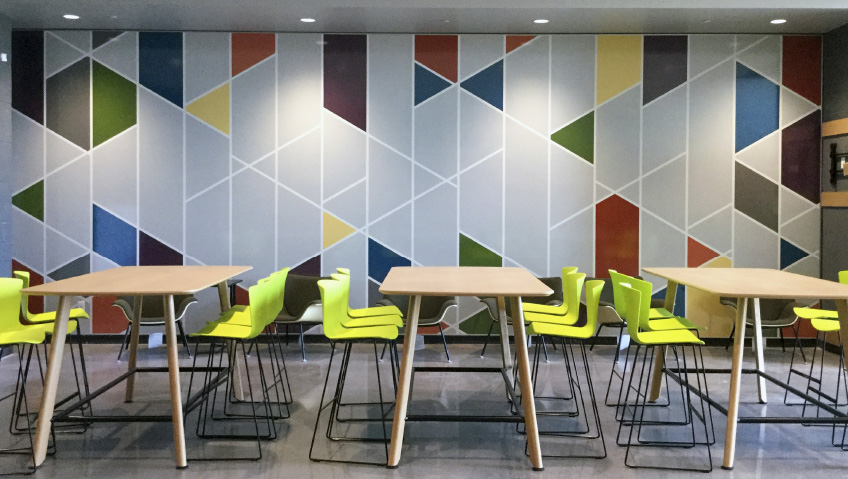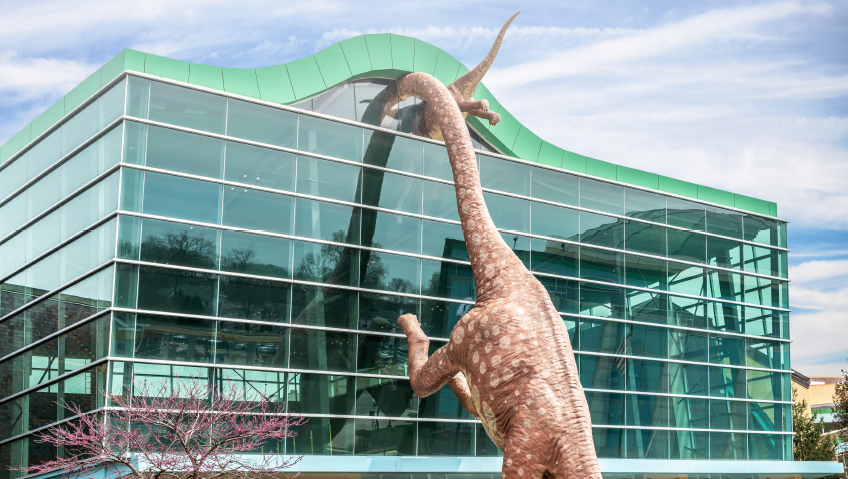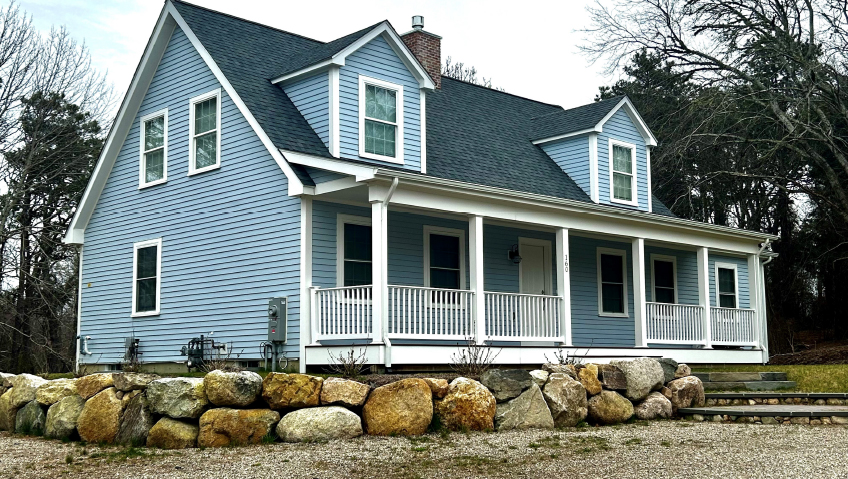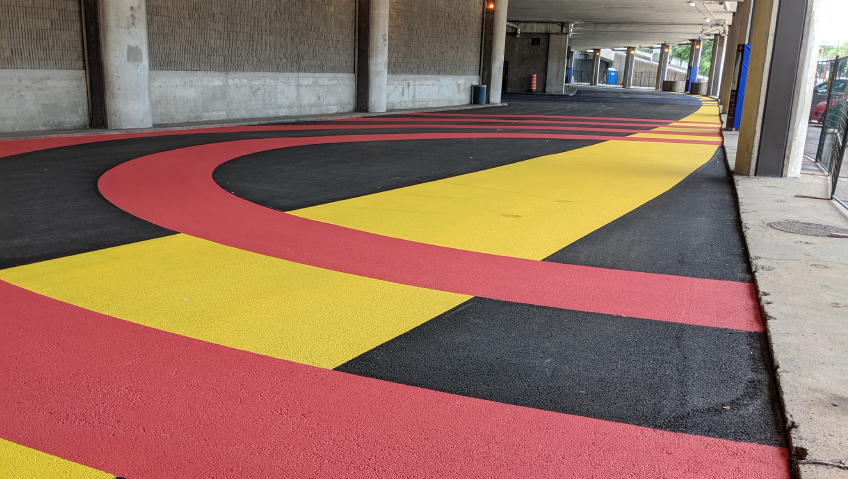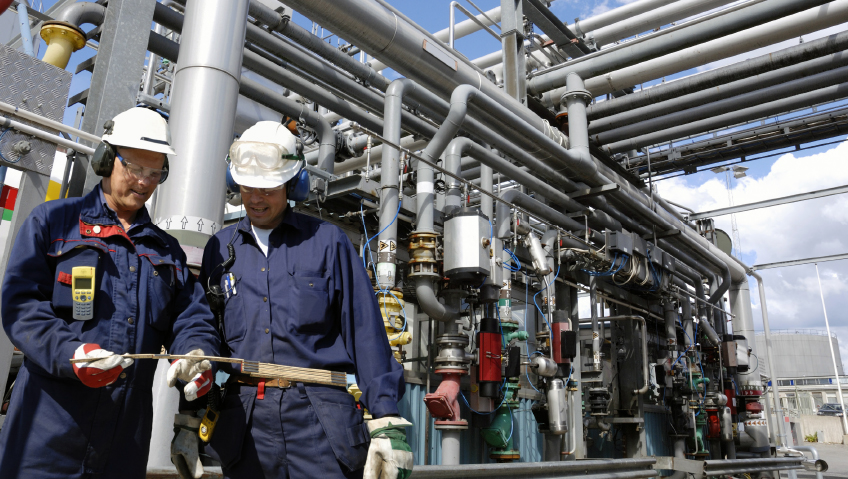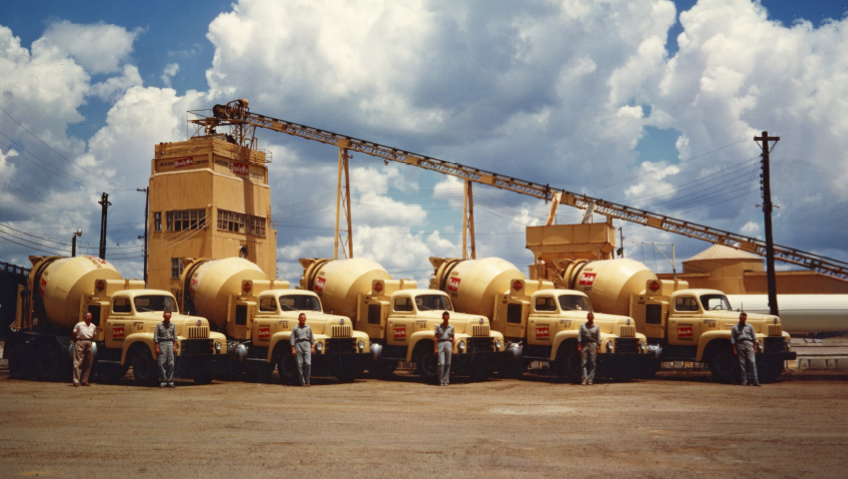Surface and panels manufacturer Polyvision Corporation has facilities in multiple American states including Georgia, Oklahoma, and Ohio as well as a European presence in Belgium, which is also home to one of its production facilities.
Polyvision got its start in 1954 in Alliance, Ohio, producing ceramic-coated steel for building exteriors. Around 1970, Polyvision introduced CeramicSteel to the education market, creating whiteboards that would become the premier choice to replace chalk boards and other writing surfaces.
Vice President of Global Marketing and Sales Kevin Taney asserts that Polyvision’s product now “spans two billion square feet of corporate, education, and public spaces globally.”
Polyvision is the only provider of the CeramicSteel material in North America, and its primary use now, as when it began in the 1970s, is for writing surfaces where it is “the choice surface for K-12 schools,” Taney explains. Hard-wearing CeramicSteel is also used as a wall solution for offices, metro stations, and airports.
Taney explains that Polyvision’s premium writing surfaces are superior due to their durability and clarity, tougher than alternatives like melamine or painted steel and clearer and less reflective than glass. CeramicSteel is also used for such purposes as digital printing on coils since the material has roughly the thickness of a fingernail but a print can be baked directly into the ceramic. Whereas other digital printing applications typically layer the material on top of a surface, this method guarantees durability for decades.
Taney is proud that Polyvision has been a people-first organization since its inception. After nearly 50 years, the business was acquired in 2002 by Steelcase, one of the largest office supply manufacturers in the world, before being sold to investment company Industrial Opportunities Partners in 2020. Throughout these moves, the core values of the business remained as strong as ever.
“We stay true to our people and our guiding principles,” Taney affirms, and this includes encouraging a long-term culture among its workers, some of whom have been here for 30 to 40 years.
Held on a similar level of importance is sustainability—but the company approaches it a bit differently from its peers.
“Limiting our current environmental footprint is important to us,” Taney states. All of its manufacturing facilities are ISO-certified and in 2006, CeramicSteel also became the first European product to be certified as Cradle to Cradle certified. This certification emphasizes the reusability of ingredient materials and product and water conservation, among other elements. In 2020, the company exceeded a decade-long goal to reduce its ecological footprint by 25 percent through water conservation, lowering emissions, and more.
The company’s sustainability efforts extend beyond protecting the natural environment to protecting people in different ways. It has embraced the United Nations’ Sustainable Development Goals (SDG) which are seventeen sustainability- and humanity-focused goals. These include eliminating poverty and hunger as well as emphasizing good health, responsible consumption, climate action, and generally calling for greater equity.
Polyvision accepted the challenge from the UN in 2022 and aims to become an SDG Pioneer by 2025. Its business-wide attention will be on improving well-being at work, reducing its electricity consumption, and continuing to move toward more sustainable materials and more sustainable use of those materials.
Currently, Polyvision is concentrating on promoting its CeramicSteel surface in its primary market of education while continuing to educate designers and users about the surface and its capabilities. Taney observes that education is still a robust sector despite a slowdown in 2021 due to the COVID-19 pandemic pausing traditional classes. A 35 to 40 percent drop in school construction caused a bottleneck in the industry. Thankfully, construction efforts have come back in a big way since the end of 2022 and look to be returning to normal levels, a good sign for the overall health of the industry.
A great boon for both Polyvision and its customers during the height of concern for COVID-19 transmission was its introduction of hygienic surfaces. Discussion during 2021 was dedicated to how people can work together to save space while remaining separate for safety, so the company introduced a self-cleaning, hygienic, CeramicSteel divider screen called Boundri™ containing silver ions baked into the surface, as silver is a natural antimicrobial.
COVID-19, coupled with supply chain delays in the market, caused what Taney refers to as “air in the hose,” to refer to the disruption in historical flow. Shortages of labor and supplies like steel, in turn, caused customer delays of up to 16 weeks and further disruption in overall construction. These challenges were mitigated, however, and lead times began to return to normal.
Looking ahead to the rest of the year and beyond, the company has robust plans in place for its original equipment manufacturing (OEM) and panel sales channels. Steelcase, is a major OEM customer, so Polyvision will be continuing to push further in that area to create new channels of business and new customers within those channels.
Taney is firm that all steps will be taken to protect the core business of serving the education space, especially with favorable industry headwinds foreseen for the rest of 2023. As a result of recent actions like the acquisition of manufacturer Marsh Industries in 2020, Polyvision is now offering Marsh’s series of visual boards amongst its offerings, proving that the company is still finding new opportunities in the education space.
The team is, however, interested in prospects in emerging channels that will allow more customers to become educated about CeramicSteel. Spaces like digital printing and newer office manufacturing companies are examples of sectors that could benefit greatly from such a product. A new state-of-the-art digital printing machine was recently installed in Oklahoma and will go live in July of this year in tandem with one in Belgium to help raise the visibility of the company’s signature material.
“We see the beauty of CeramicSteel and putting an image onto that is stunning,” says Taney. Polyvision Corporation still sees a great deal of potential in its signature material, and will be spreading the word about it for a long time to come.

